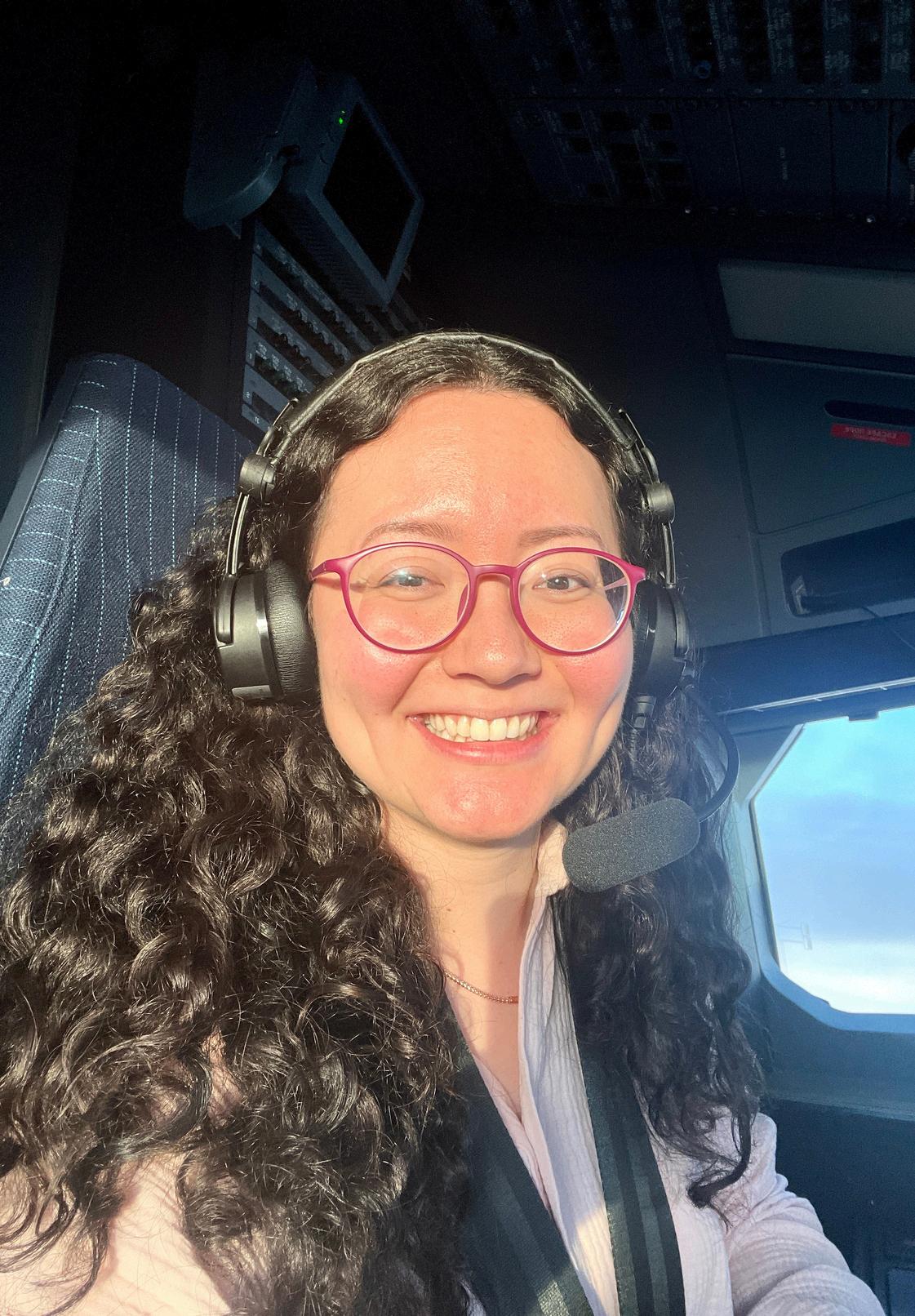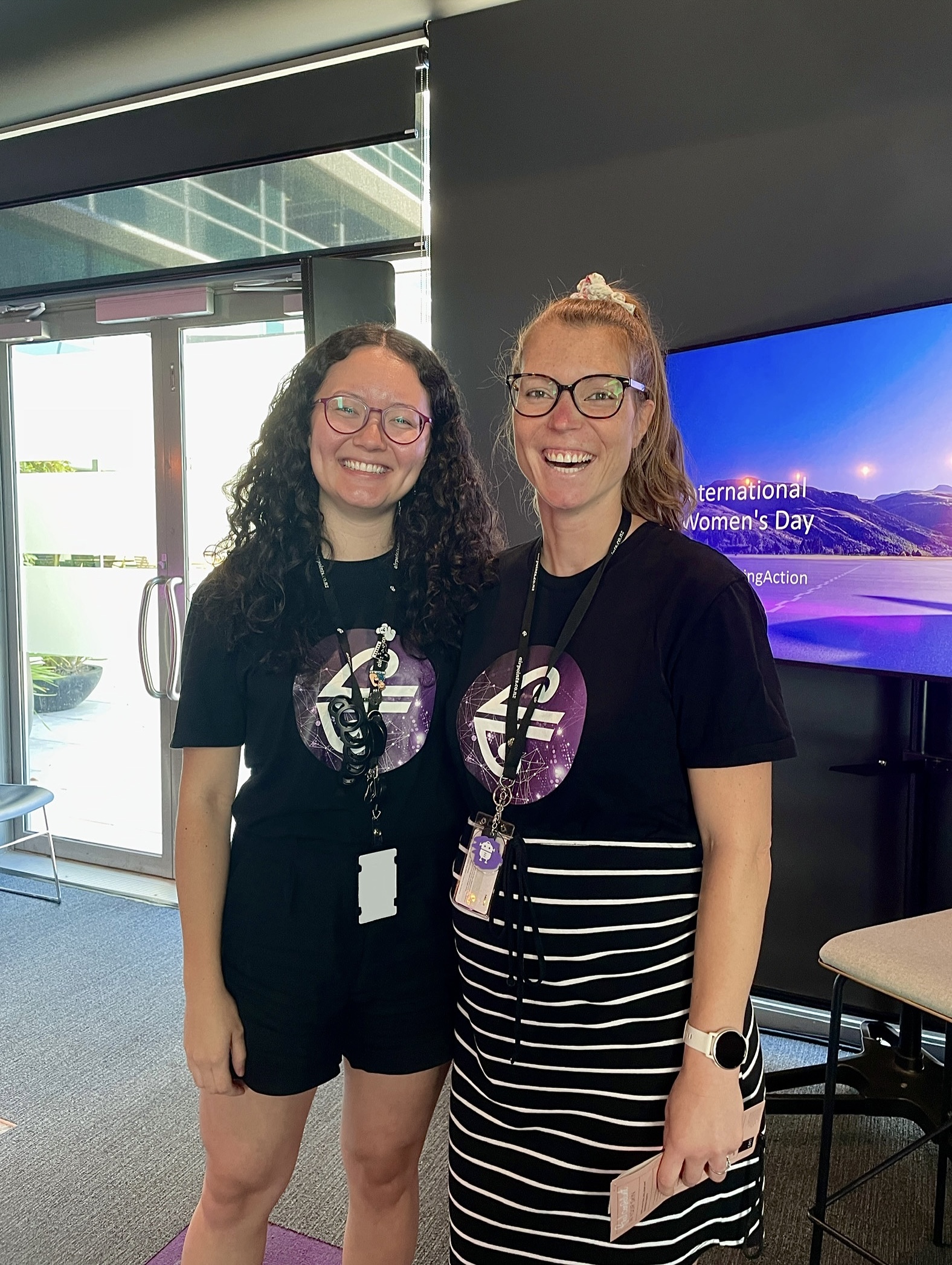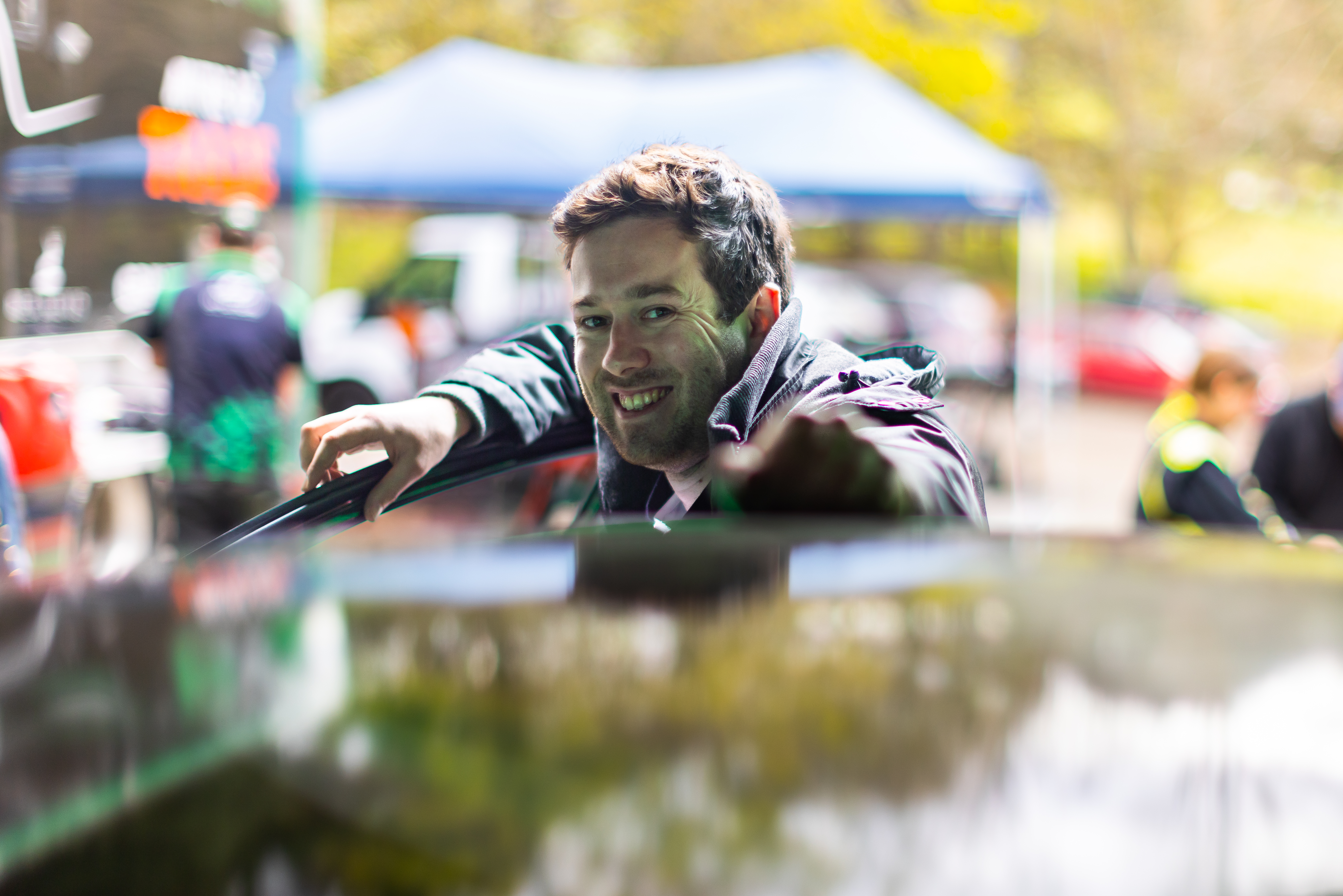
5 minute read
Michelle Delves: The Data That Makes A Difference
Michelle Delves has always measured her work by its impact. Now, as an Analytics Engineering Specialist at Air New Zealand, she transforms data into tools that make work easier and decisions smarter. She joins us to chat about problem-solving, collaboration, and making a difference.
Across Tāmaki Makaurau, there are hundreds - if not thousands - of people who’ve felt the impact of Michelle Delves. There are those who watched her deliver the inaugural valedictorian address at her university graduation. There are those who saw her leadership in action with student engineers, as president of wellbeing initiatives or as vocal director for their SkyCity Theatre performances. And now, there are those who are lucky enough to work alongside her at Air New Zealand.
Ask Michelle about these experiences, and she’ll happily chat away about her favourite memories from each. But, the point she always comes back to is how they’ve all offered an opportunity to make a difference - and that, she says, is the measure that matters most.
“When you go into a job, especially when it’s in a big company, you can end up questioning what actual, tangible difference you’re making,” Michelle reflects when we connect over the phone. “But, I’ve decided that as long as the actions I’m taking and the work I’m doing is helping people - no matter the scale - then that’s all I could ask for.”
“Recently, for example, I built a data product from scratch, but the instructions I had weren’t very intuitive for a first-time user. So I looked at the mistakes I made and the nuances I would have appreciated knowing, and updated the instructions to reflect them. The following week, I overheard someone say my guide had made the process so much easier. In all the trials and tribulations, it’s worth it to me if somebody else is better off because I used my experience to improve the process."
As an Analytics Engineering Specialist at New Zealand's leading airline, data, as you'd expect, plays a pretty big role in Michelle's day-to-day mahi. "I ingest data from different business applications into our modern data platform," Michelle explains. "Once that data is available, I build products that go on to help people make informed decisions - whether that's about a work roster, a plane, or a business decision. It's really interesting, each day has a mix of platform work, ingestion, and modelling."
Michelle’s 18 months into her career now, and speaks with a gracious sense of gratitude about the breadth of her experiences - which, for the record, have also included time as a Data Engineer working on cloud-based systems, and contributing to AI initiatives within the airline - not least because, only a few years prior, she had been unsure how to piece together what her career might eventually look like.
"Something I struggled with in high school was that I was a jack of all trades, but I never did amazingly at any one thing. I had absolutely no idea what I wanted to do, and applied for about ten different combinations of degrees. What eventually led me to engineering was that I really liked being able to problem-solve, and wanted to head into a field that would challenge me.”

“Plus,” she adds with a laugh, “my careers counsellor told me I probably wouldn’t survive STEM, and nothing fuels me more than someone telling me I can’t do something!”
Keen to keep her options open, Michelle chose engineering science as her specialisation. Compared to pathways like civil or software engineering, which tend to funnel graduates into specific careers, engineering science offered a broader base.
“I hoped it would show employers that I was flexible and able to adapt to different kinds of work,” she explains - and as it turns out, her instincts were right. That degree opened doors to several internships, and an honours project, with Fisher and Paykel Healthcare. There, she worked on nasal high-flow technology for premature babies, as well as an educational tool modelling how infectious particles moved through a room during the height of Covid-19. “The degree gave me the chance to try so many different things, and it built the problem-solving skills I still rely on today.”
So, how does all of this compare to life after university? For Michelle, it comes down to problem-solving.
“In university, a lot of your time is spent memorising content - physics definitions and maths formulas. Going into real work, there isn’t a formula to memorise. Instead, you have to think on your feet, and adapt to different situations. If something breaks, or isn’t working, you have to piece together your existing knowledge like a puzzle. A lot of the time, it’s relatively straightforward, but sometimes there’s a case where you have no idea what’s wrong, so you’ve got to troubleshoot, think critically, and to some degree, just trust your gut.”
Collaboration, too, has taken on new importance. “There are so many people to work with – domain owners, tribe digital leads, others in the same role. Sometimes you’re getting endorsements for solution designs, and sometimes you’re working together to figure out improvements. It’s a very team-driven process.”
And for now, that’s exactly what she’s off to do - working alongside her team to deliver data-driven solutions, building upon the waves of impact that have carried her this far, and setting ripples in motion for others to follow.
Michelle's advice for students interested in STEM:
“Be curious. Don’t be afraid to ask for help. Stand up for what you believe in. And remember, you can do anything you set your mind to.”





